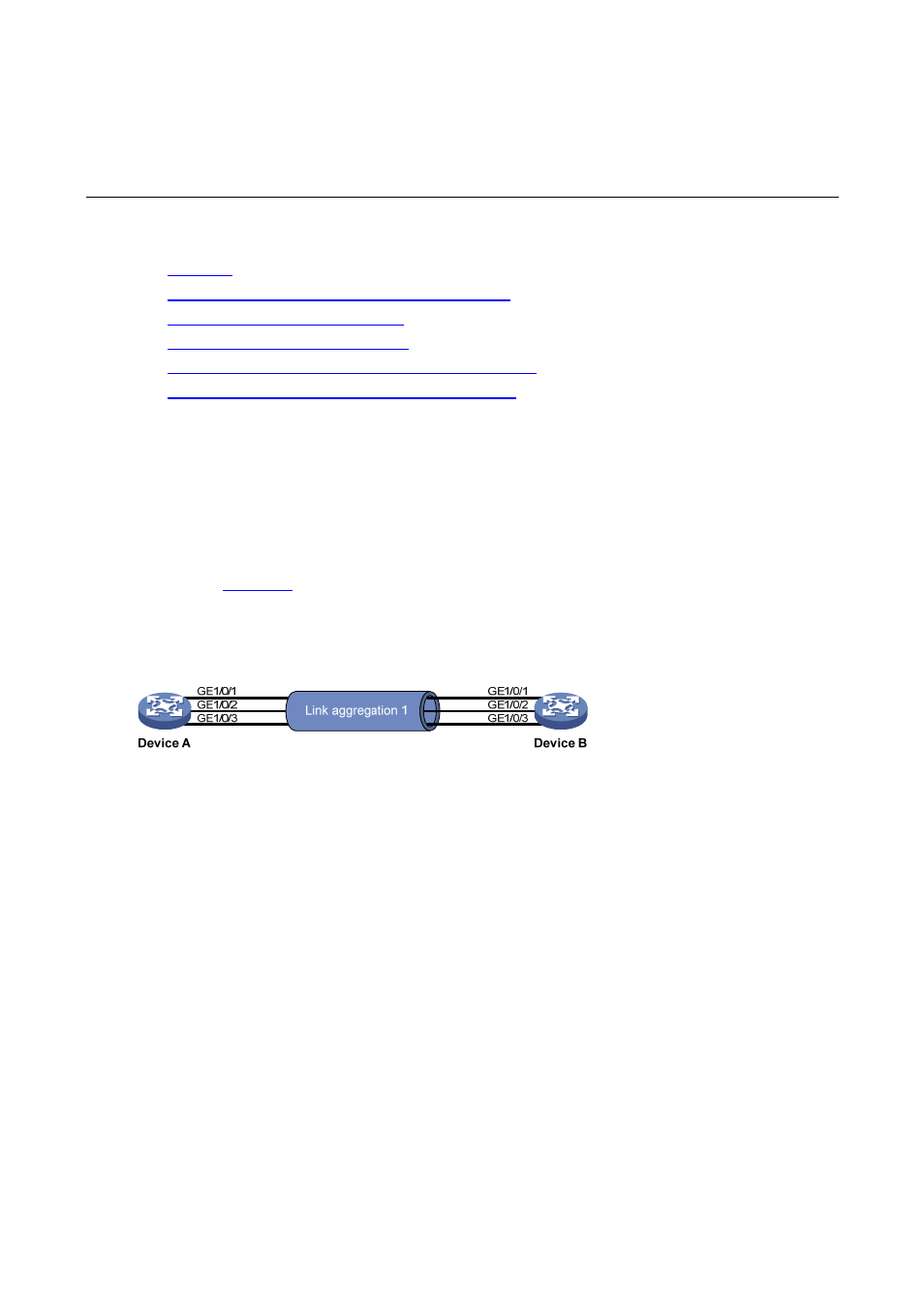1 ethernet link aggregation configuration, Overview, Basic concepts – H3C Technologies H3C S5120 Series Switches User Manual
Page 99: Ethernet link aggregation configuration

1-1
1
Ethernet Link Aggregation Configuration
This chapter includes these sections:
z
z
Ethernet Link Aggregation Configuration Task List
z
Configuring an Aggregation Group
z
Configuring an Aggregate Interface
z
Displaying and Maintaining Ethernet Link Aggregation
z
Ethernet Link Aggregation Configuration Examples
Overview
Ethernet link aggregation, most often simply called link aggregation, aggregates multiple physical
Ethernet links into one logical link to increase link bandwidth beyond the limits of any one single link.
This logical link is called an aggregate link. It allows for link redundancy because the member physical
links dynamically back up one another.
As shown in
, Device A and Device B are connected with three physical Ethernet links. These
physical Ethernet links are aggregated into an aggregate link, Link aggregation 1. The bandwidth of this
aggregate link can be as high as the total bandwidth of these three physical Ethernet links.
Figure 1-1 Diagram for Ethernet link aggregation
Basic Concepts
Aggregation group, member port, aggregate interface
Link aggregation is implemented through link aggregation groups. An aggregation group is a group of
Ethernet interfaces aggregated together. For each aggregation group, a logical interface, called an
aggregate interface is created. To an upper layer entity that uses the link aggregation service, a link
aggregation group looks like a single logical link and data traffic is transmitted through the aggregate
interface.
There are two types of aggregate interfaces: bridge-aggregation (BAGG) interfaces, which are Layer 2
aggregate interfaces, and route-aggregation (RAGG) interfaces, which are Layer 3 aggregate
interfaces. When an aggregate interface is created, an aggregation group of the same type and
numbered the same is created automatically. For example, when you create interface
Bridge-aggregation 1, Layer 2 aggregation group 1 is created.
To a Layer 2 aggregation group, you can assign only Layer 2 Ethernet interfaces.
